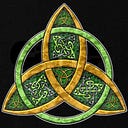Yes, it was, Robert. Hysterical. Comedy in the 1960s to at least the 1980s was all about pushing the envelope, calling out hypocrisy, and blowing the lid off of propriety. Being offensive was “in.” It was a reaction against the rigid conventions of previous generations.
The humor in “The Germans” episode was centered around the “what if” of someone who, due to a head wound, is unable to successfully filter their thoughts and the mayhem that would ensue. Lots of things cross our minds that we would never say in public and it’s not just about hiding our true selves.
Our thoughts come from everything we’ve been exposed to throughout our lives: media, education, other people’s opinions, our own experiences, etc. We can embrace them, ignore them, or reject them.
I was a teenager when that episode aired. My father and most of my friends’ fathers fought in World War II. My husband’s father was in combat with the Nazis and lost his best friend in a German U-boat attack. His grandfather had a lifelong disability after a German mustard gas attack in World War I. I knew Jewish people growing up who had been in concentration camps and had many friends who lost relatives in the Holocaust. The same can be said of most of my generation.
Nevertheless, we laughed along with Hogan’s Heroes, National Lampoon, Saturday Night Live, All in the Family, Fawlty Towers, and many other shows. Why? Because we were horrible people? No. It’s because we knew the difference between laughing at the universal absurdity of human behavior and laughing at people just to be cruel or feel superior.
